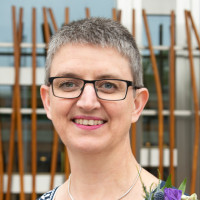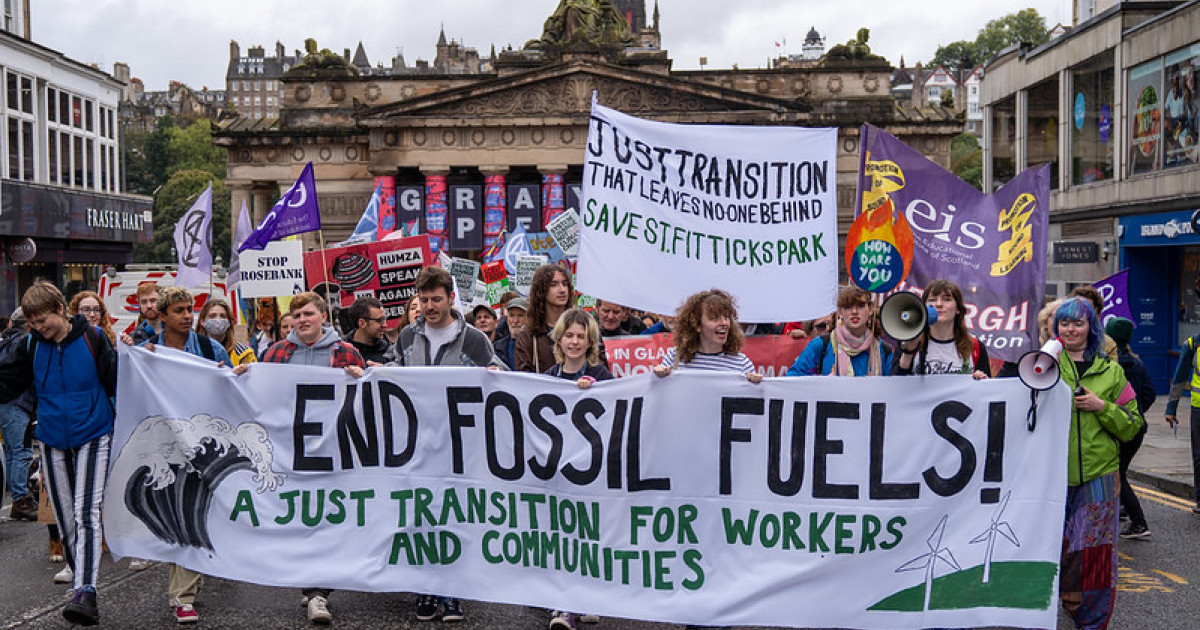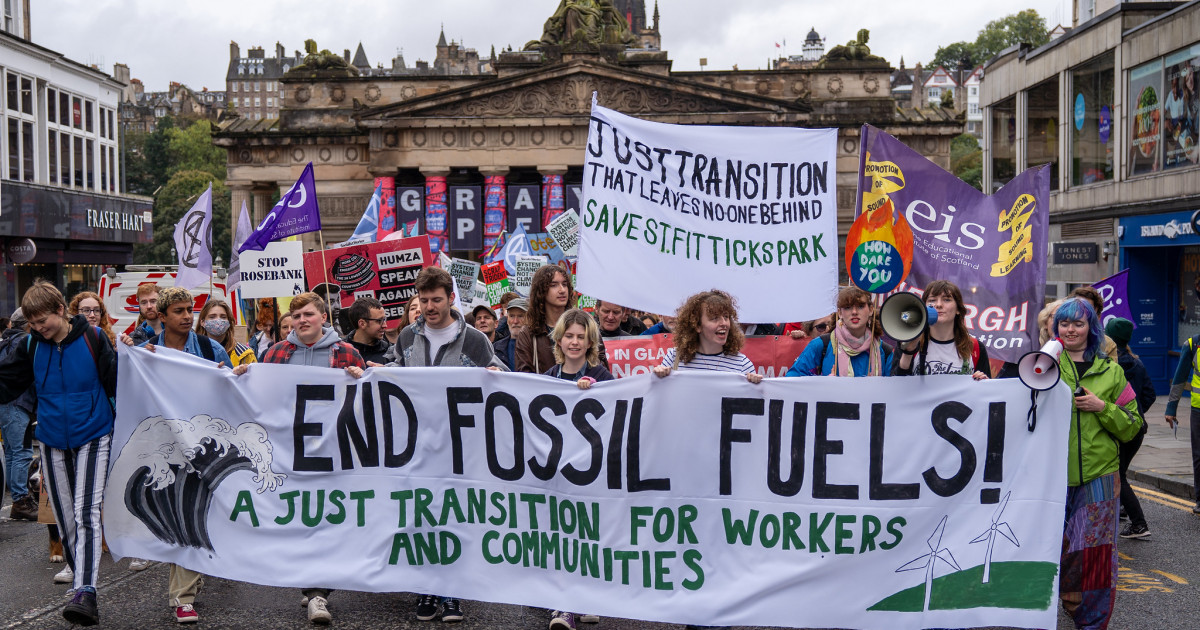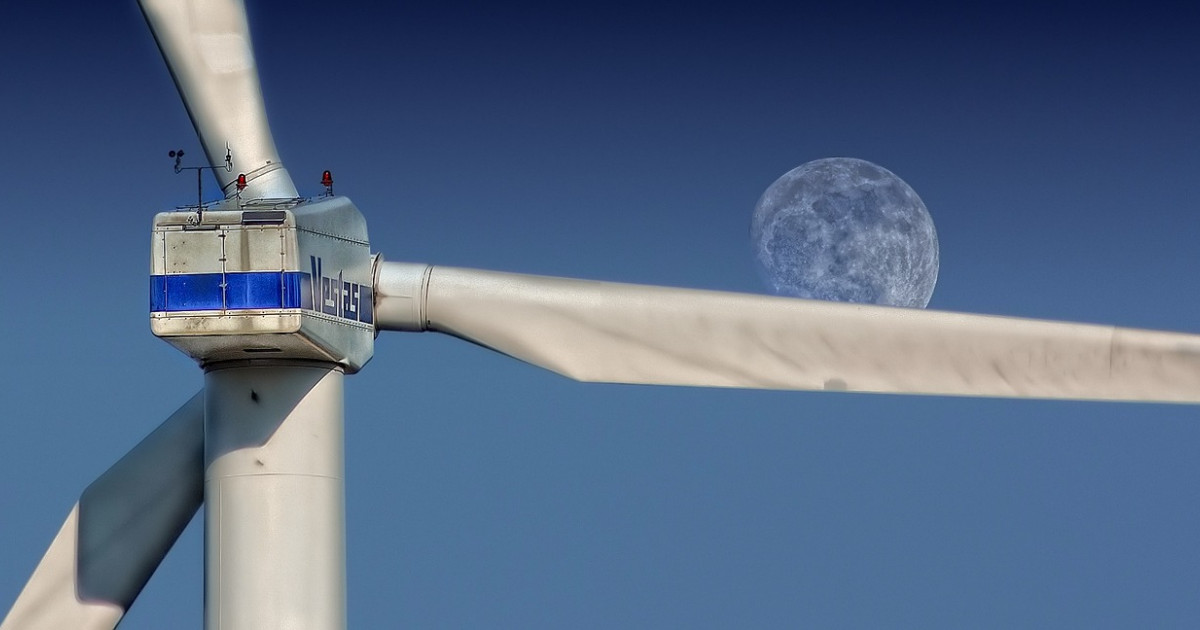It’s time to stand up and be heard all over again
As thousands prepare to march for climate in Edinburgh today, Maggie Chapman MSP questions what happened to the action promised by the Paris Agreement
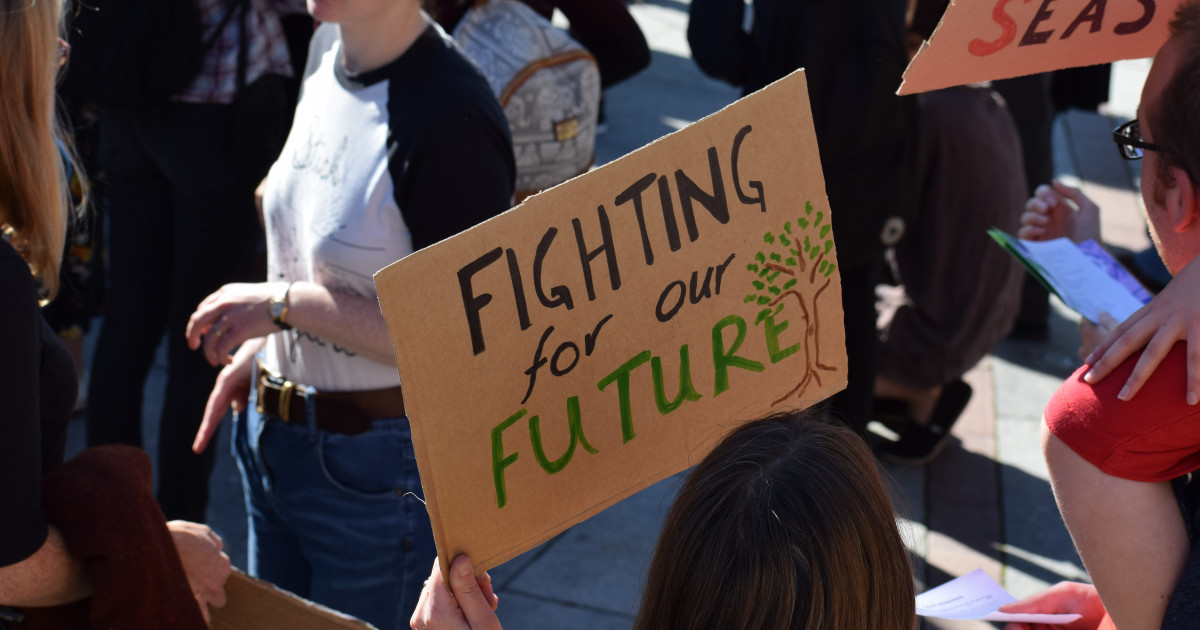
The Paris Agreement was a critical moment in time where the world truly seemed to stop just for a second and listen. People looked like they were paying attention. After decades of warnings, the scientists, the campaigners were finally being heard.
Crazed weather, better organised activists, a change in protest tactics united to unnerve leaders of nations. Business elites looking at their bottom lines whispered nervously into eager ears, those with vested interests wining and dining their powerful friends.
The result was in the winter of 2015, December 12, the first drafts of an agreement adopted by 195 nations promising that they would reach net zero by cutting out the carbon emissions caused by their obsession with economic growth and scant regard for anything else.
The politicians and bag carriers slapped themselves on their backs, put on their favourite ties and expensive suits, and lined up for the photocall to take their bow. Targets were set. They agreed on the minimum requirements necessary to keep us safe, to protect the planet - without costing them too much, of course. Boxes ticked.
Climate change, it seemed, had been solved.
Yet some were more doubtful. Cynical even. Myself among them. Setting targets was not the bold, progressive change that was needed. Targets were in large parts a PR exercise, a comfort blanket to reassure the masses that someone was still in control. To prevent panic, uprising, to stymie the momentum for change.
What was needed was action. But markets settled, businesses boomed, political careers flourished, the media had a new label to use every time a natural disaster happened. On November 4, 2016, the Paris Agreement came into force.
Eight years have passed since that first draft, and the doubters are being proved right. We are nowhere near achieving net zero, change isn’t coming nearly fast enough. Because targets were never the solution, action is what was needed.
Just days ago Simon Stiell, the UN executive secretary for climate change, pointed to the evidence in the Global Stocktake Technical Synthesis Report, something which may prove to be one of the most important documents of our time.
It is the first such comprehensive assessment since the Paris Agreement was signed in 2015. It makes for grim reading. It says we are way off track and the only way to catch-up is for countries to do more and raise national targets for cutting emissions.
Crucially, it highlights ending “unabated fossil fuels” and investing instead in renewables and to support developing countries. That requires climate funding. Which is the crux of the matter and where the next debate must centre come COP28 in two months time.
At a time when our spending should be focused on green solutions to wean us off fossil fuels and to clean up our atmosphere as set out in the Paris Agreement, the exact opposite is happening.
Look at the evidence. The amount of money invested in fossil fuels around the world from 2019-2020 was $892bn. The sector was also handed a further $450bn in subsidies. By contrast, just $803bn was spent on tackling climate solutions. For a politician surrounded by oil and gas interests in the north-east, I experience that frustration every day.
Last year’s Deloitte’s Global Turning Point Report stated the financial costs of such ingrained failure could cost governments and businesses $178trn over the next 50 years. With a renewables led future, that could instead lead to a $43trn boost, it said.
That is in part supported by a Powering Up the Workforce study from Robert Gordon University just this week, predicting jobs in offshore renewable energy in the North Sea could almost double from 150,000 to 225,000 by the end of this decade with a Just Transition, or risk 95,000 jobs without. It is why I and my colleagues are so invested in delivering a sustainable future for workers.
The UN International Organisation for Migration also predicts around a billion people will become environmental migrants by the time a baby born today reaches the age of 25, because of climate change.
Today in Libya, the huge human tragedy alone from the catastrophic floods that washed away entire communities is still incalculable. As many as 20,000 are feared dead. Sudan has had its fourth year of catastrophic flooding, the Emilia-Romagna region of Italy saw 40,000 people evacuated and as many as 15 people killed. Rwanda had its worst flooding in a generation. Some 50 people died in torrential rain which caused landslides in Sao Paulo in Brazil.
Europe, Asia and North America have suffered intense heat waves, July being the hottest on record. They raged across Greece forcing mass evacuations. Spain, France, Italy, Canada, have been fighting them too. Chile has suffered what was termed a mega drought. More than 100 perished with the same again missing during the fire storm that razed parts of Hawaii last month. India is in bits. This year’s blaze at Cannich in the Highlands has been officially recorded as the largest wildfire ever experienced by the UK. In the US, the clean-up cost from climate related events has so far been put at $1bn.
Today thousands of people, many of them too young to vote in previous elections, will gather in Edinburgh with fellow Scottish Greens to march for Global Action on climate and call for an end to new oil and gas. I hope you join them.
Paris has let us down. The drills keep turning. It’s time to stand up and be heard all over again.
- A version of this article, Edinburgh Climate March: It's Time To Stand Up and Be Heard Again, first appeared in The National on September 15.
